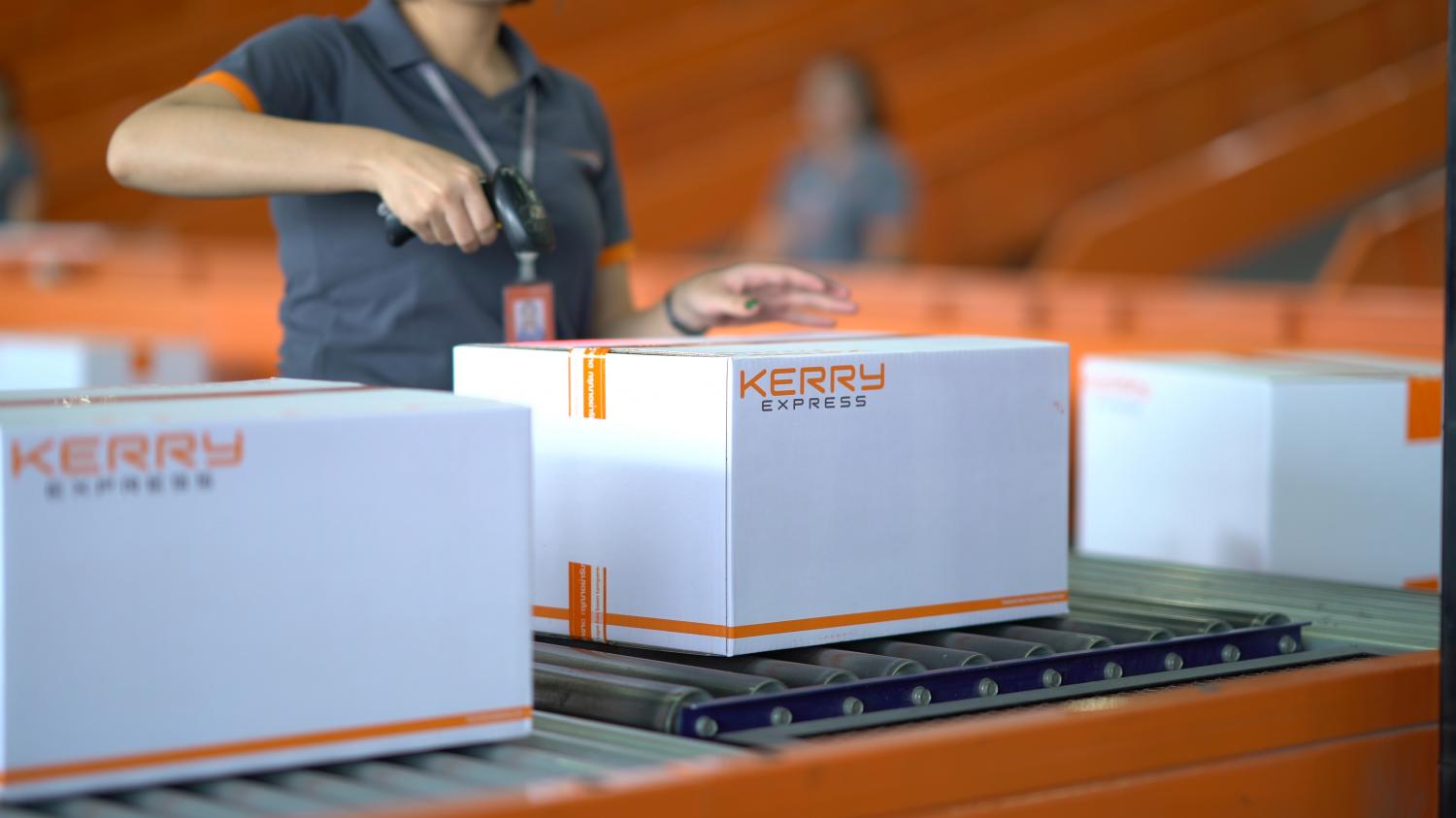
Thailand's logistics network has seen a considerable spike in volume, leaving operators scrambling to meet demand from a homebound population relying on deliveries for essential goods.
Last week, rumours swirled on social media of employees quitting en masse from Kerry Express, the nation's largest private delivery company, accompanied with pictures of boxes piling up at Kerry warehouses and fruit going rotten from shipping delays.
Alex Ng, Kerry's chief executive, flatly denies the rumours of ill treatment, saying turnover has remained normal while the company hurries to hire hundreds more workers to raise its capacity and reduce delays. The company currently employs 30,000 people in Thailand.
The company is aiming to close its order backlog within the next week and has banned deliveries of fruit and perishable items.
Kerry has also increased financial incentives for delivery drivers and warehouse workers during the period of heavy workload.
"We have never seen this before in our history or the history of this industry, with more than 50% or at some moments double volume per day," Mr Ng said. "Kerry is working to increase our capacity."
Part of the congestion is because Kerry has seen a large increase in individual packages, whereas before most of its shipping volume came from corporate customers.
The curfew and Covid-19 health crisis have also contributed to delays. While Kerry is labelled an essential business by the government and its drivers are authorised to work during the curfew, roadblocks and checkpoints still add delays to the delivery cycle.
However, many Thais on social media have expressed anger over photos showing boxes piled on the floor of Kerry warehouses.
"We took action already, and the other photos of boxes piling up were boxes waiting to be loaded onto trucks," Mr Ng said.
Health and safety measures have also slowed down the workflow, as each parcel is sprayed with disinfectant and employees must wash their hands at regular intervals.
Two Kerry workers were recently infected with Covid-19 in northern Thailand. The branch where they worked was shut down for 14 days and employees in contact with the infected persons were sent into a 14-day quarantine.
"We can make the delivery cycle more fluid, but we cannot compromise on hygiene and health measures," Mr Ng said. "To go faster, we have to hire more people and increase capacity."
Lazada, the Singapore-based e-commerce company, is also expanding its logistics capacity in Thailand through its Lazada Express delivery service and third-party operators.
Jack Zhang, chief executive of Lazada Thailand, said the company already has the capacity to meet demand spikes, which are mainly due to frequent sales that test the company's logistics capabilities.
The site saw over 20 million monthly active users in March. For its March 27 Birthday Sale, home appliances saw a 15-fold increase in sales as groceries went up by six times.
"Our March campaign saw a huge spike in volume, and we have been able to deliver the majority of parcels in a short time period," Mr Zhang said.
He said the curfew has altered operations at warehouses that typically sort packages at night. The company changed its operating times to make sure workers can get home by 10pm.